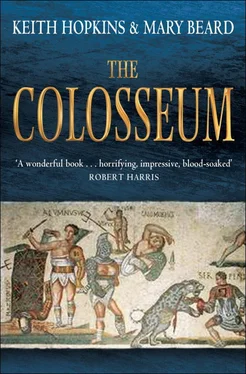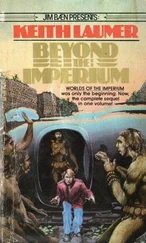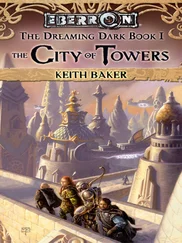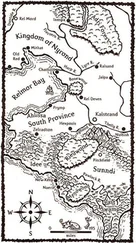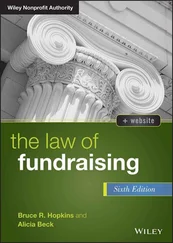Keith Hopkins - The Colosseum
Здесь есть возможность читать онлайн «Keith Hopkins - The Colosseum» весь текст электронной книги совершенно бесплатно (целиком полную версию без сокращений). В некоторых случаях можно слушать аудио, скачать через торрент в формате fb2 и присутствует краткое содержание. Город: London, Год выпуска: 2011, ISBN: 2011, Издательство: Profile Books, Жанр: История, на английском языке. Описание произведения, (предисловие) а так же отзывы посетителей доступны на портале библиотеки ЛибКат.
- Название:The Colosseum
- Автор:
- Издательство:Profile Books
- Жанр:
- Год:2011
- Город:London
- ISBN:9781846684708
- Рейтинг книги:3 / 5. Голосов: 1
-
Избранное:Добавить в избранное
- Отзывы:
-
Ваша оценка:
- 60
- 1
- 2
- 3
- 4
- 5
The Colosseum: краткое содержание, описание и аннотация
Предлагаем к чтению аннотацию, описание, краткое содержание или предисловие (зависит от того, что написал сам автор книги «The Colosseum»). Если вы не нашли необходимую информацию о книге — напишите в комментариях, мы постараемся отыскать её.
The Colosseum — читать онлайн бесплатно полную книгу (весь текст) целиком
Ниже представлен текст книги, разбитый по страницам. Система сохранения места последней прочитанной страницы, позволяет с удобством читать онлайн бесплатно книгу «The Colosseum», без необходимости каждый раз заново искать на чём Вы остановились. Поставьте закладку, и сможете в любой момент перейти на страницу, на которой закончили чтение.
Интервал:
Закладка:
Martial starts by praising the building (‘All Works to Caesar ’s Theatre give place’) and then stops briefly to highlight the exotic, polyglot crowd which has turned up for the greatest show on earth: a wonderful combination of farmers from the wilds of northern Greece, the weird Sarmatians from the Danube who drink their horses’ blood, and Germans and Ethiopians, each sporting a different style of curly hair. The first ‘act’ he celebrates is one that modern readers must find most shocking. It is not from what we now imagine to be the standard repertoire of these shows: gladiators and wild beast hunts (or alternatively the execution of criminals by animals, as in ‘Christians versus lions’). Instead, it is a strange ‘charade’, re-enacting a story from mythology – for the Romans a no less important and distinctive genre of displays in the amphitheatre. In this case the story played out is that of Pasiphae, the wife of King Minos of Crete whom the god Poseidon (in order to punish her husband) made fall in love with a bull: the famous half-bull/half-human Minotaur was the result of the union. Martial’s poem appears to claim that this event was acted out before the audience in the amphitheatre, between a woman and a live animal, while praising the capacity of the show to ‘make real’ such ancient (even to the Romans) mythological tales. As Thomas May’s, rather too gleeful, seventeenth-century translation puts it:
Beleeve a bull enioy’d the Cretan Queene;
Th’old fable verif’d we all have seene.
Let not old times, Caesar, selfe-praised bee;
Since what fame sings, the stage presents to thee.
How literally should we read this? Are we to take it that these opening celebrations of the Colosseum, under the admiring eye of the emperor Titus and of the massed ranks of Roman citizens, really featured sex between a woman and a bull? Possibly. There is other evidence for dramatic executions of criminals in the Roman arena along these lines (presumably the woman would not have survived the encounter, which we assume to have been some form of quasi-judicial punishment). Condemned criminals were induced – again, it is difficult to see quite how – to take part in their own death scenes as if actors in a play. Later in The Book of the Shows Martial focuses on the crucifixion of a man, who seems to have re-enacted in the amphitheatre the punishment of a legendary Roman bandit called Laureolus, until he was put out of his misery by a bear imported from Scotland. He simultaneously reminded the audience of the myth of Prometheus, whose particular divine punishment was to have his liver continually devoured by vultures during the day and grow back again at night:
Just as Prometheus, bound tight on a Russian crag
Fed with his ever healing and regrowing heart
The bird that never tires of eating
So,
cast as
Laureolus, the bandit king, nailed to a cross – no stage
prop this –
A man offered his exposed guts to a Highland bear.
His shredded limbs clung onto life though
Their constituent parts gushed with blood;
No trace of body – but the body lived.
Finally he got the punishment he deserved…
Maybe he’d slit his master’s throat,
Maybe he’d robbed a temple’s treasury of gold,
Maybe he’d tried to burn our city, Rome.
That criminal had surpassed all ancient folklore’s crimes.
Through him what had been merely myth
Became real punishment.
This is also an aspect of games, that Tertullian – a late second-century Christian from North Africa, and a particularly strident religious ideologue – picks out when he complains that criminals in the amphitheatre take on the mythological roles of Attis (who castrated himself) or Hercules (burned alive). Even closer to Martial’s woman and the bull is an episode in Apuleius’ brilliant novel The Golden Ass , also a product of second-century North Africa. Apuleius recounts how a woman convicted of murder was condemned, before being eaten by a beast, to have intercourse in a local amphitheatre with an ass – in fact the human hero of the story, transformed into an ass by a magical accident. The brainy ass is not convinced that the lion will know the script, and fears that it might well eat him instead of the woman, so he scarpers before the performance.
On the other hand, we might be dealing with a rather different kind of charade. It is not so much a question of how feasible the intercourse described would be; historians have been predictably ingenious with their solutions to that problem, and have plenty of parallels from modern pornography to hand. More to the point is that there is nothing here to disprove the idea that the ‘bull’ was in fact a human being in fancy dress and that the ‘reality’ of the union was something injected by the poet. After all, the wonderfully fantastical Golden Ass and the tirades of Tertullian are hardly very strong evidence for standard practice in the arena. Martial’s contribution to the celebration, in other words, might have been to take a piece of play-acting in the Colosseum and to make it real (by treating it as such) in his verses.
Whatever reconstruction they prefer, most modern scholars have been keen to stress that Martial did not disapprove of such spectacles. True enough. But by using approval or disapproval as the touchstone, this observation tends to miss what Martial so positively admires in the shows and spectacles that he evokes and recreates for his readers. In contrast to the common modern view of the crude sadism of the arena, Martial’s poems repeatedly emphasise – uncomfortable as this must be for us – the sophistication of what was on show at the Colosseum’s inauguration, its clever echoes of the cultural and mythological inheritance of the Roman world, and the wily thoughts about representation and reality (‘what had been merely myth became real punishment’) they prompt. Perhaps the most puzzling thing about the Roman amphitheatre is not how to explain the violence and cruelty that took place there, but how to explain the way the Romans described and explained that violence.
In the other thirty or so poems that make up the celebratory collection for the Colosseum’s opening, Martial develops these themes. One playfully (and horribly) subverts the myth of Orpheus, the magician who could charm the animals: the Orpheus figure in this display works no such magic – he is torn apart by a bear. No fewer than three poems take as their subject a pregnant sow killed in one of the beast hunts: in a striking coincidence of birth and death, baby piglets emerged from the very wound made by the spear. Others reflect on the miraculous shifts engineered between water and dry land (so perhaps supporting Dio’s claims about the flooding) and on the paradoxes of the wild and the tame that were on show in the amphitheatre. A tigress, for example, scored a first by attacking a lion when she would have done no such thing in the wild: the truth was that domestication had actually increased her ferocity. Conversely, an elephant that had just dispatched a bull spontaneously came and knelt as a suppliant in front of the emperor; so too did a deer, who in this way miraculously escaped the hounds chasing her. The message – all the stronger for being delivered in this mass gathering – was that even the animals recognised imperial power.
But what of the gladiators? Only one single poem in the whole Book of the Shows features a gladiatorial bout. We must assume that the hundred days of celebration saw combat after combat between the usual array of star fighters, hardened veterans and raw recruits. But here one encounter must stand for all. The fighters concerned were ‘Priscus’ and ‘Verus’, both (stage-)names with a ring: ‘Ancient’ and ‘True’. They were such an evenly matched pair that the crowd demanded their honourable discharge from gladiatorial service (their ‘mission’, as Killigrew’s translation has it) and in the end the fight had to be declared a draw. But, as so often, the eye of the poet (if not of the audience on the day; who knows?) was as much on the emperor as on the spectacle in the arena itself. It is Titus, we are told, who enforced the terms for the bout, Titus who sent them rich rewards for their valour, apparently while the fight was still in progress, and finally Titus who sent them the palms to mark their (joint) victory.
Читать дальшеИнтервал:
Закладка:
Похожие книги на «The Colosseum»
Представляем Вашему вниманию похожие книги на «The Colosseum» списком для выбора. Мы отобрали схожую по названию и смыслу литературу в надежде предоставить читателям больше вариантов отыскать новые, интересные, ещё непрочитанные произведения.
Обсуждение, отзывы о книге «The Colosseum» и просто собственные мнения читателей. Оставьте ваши комментарии, напишите, что Вы думаете о произведении, его смысле или главных героях. Укажите что конкретно понравилось, а что нет, и почему Вы так считаете.
